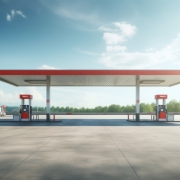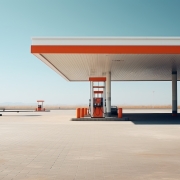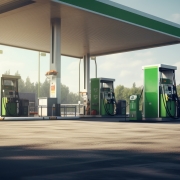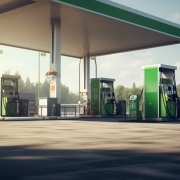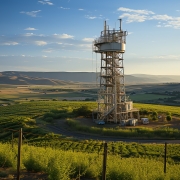Business plans are like road maps: it’s possible to travel without one, but that will only increase the odds of getting lost along the way.
Owners with a business plan see growth 30% faster than those without one, and 71% of fast-growing companies have business plans. Before we dive in, let’s define and go over what a business plan actually is.
What is a Business Plan?
A business plan is a 15-20 page document outlining how you’ll achieve your business objectives, including information about your product, marketing strategies, and finances. Create one when starting a new business and update it as your business grows.
Instead of risking wrong turns or setbacks, small business owners use business plans to guide them. These plans help see the bigger picture, plan ahead, make important decisions, and improve the overall likelihood of success.
Why is a Business Plan Important?
A well-written business plan is crucial because it gives entrepreneurs, business owners, and employees the ability to lay out goals and track progress. Business planning should be the first step when starting a new business. Business plans are also essential for attracting investors, helping them determine if your business is on the right path.
Business plans include detailed information to improve your business’s chances of success, such as:
– Market analysis
– Competitive analysis
– Customer segmentation
– Marketing strategies
– Logistics and operations plans
– Cash flow projection
– Overall path to long-term growth
10 Reasons Why You Need a Business Plan
1. To Help You with Critical Decisions.
A business plan helps make better decisions by forcing you to think about major components before starting, like marketing strategy and product offerings.
2. To Iron Out the Kinks
Creating a business plan requires answering tough questions, helping articulate your vision realistically and identify gaps in your strategy.
3. To Avoid Big Mistakes
Business plans can prevent common reasons for business failure, such as no market need, lack of capital, inadequate team, stiff competition, and pricing issues.
4. To Prove the Viability of the Business
Business plans, especially the market research section, confirm that your business idea makes sound sense and is grounded in reality.
5. To Set Better Objectives and Benchmarks
Business plans make objectives intentional and consequential, keeping you accountable to your long-term vision and strategy.
6. To Communicate Objectives and Benchmarks
Share your business plan with your team to ensure everyone is aligned with your long-term objectives.
7. To Provide a Guide for Service Providers
Having a business plan in place allows you to share relevant sections with contractors and professionals supporting your organization.
8. To Secure Financing
A business plan increases the likelihood of securing funding, whether from venture capitalists, banks, or potential buyers.
9. To Better Understand the Broader Landscape
Writing a business plan helps you understand the market terrain, competition, consumer trends, and potential disruptions.
10. To Reduce Risk
A well-crafted business plan reduces the risk associated with entrepreneurship by addressing revenue projections, logistics, market understanding, and competitive landscape.
Understanding the Importance of a Business Plan
Now that you grasp the “why” behind business plans, confidently move forward, as your business plan will grow and evolve along with your business—it’s an integral part of your entire journey, not just the beginning.

